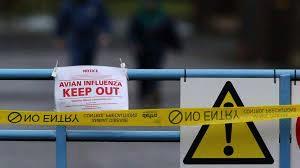 A person owning a backyard flock of ducks infected with H5N1 avian influenza has been diagnosed with avian influenza. The 79 year old male patient, aptly named Brian Gosling was hospitalized with respiratory symptoms. Investigations yielded an H5 serotype that is currently undergoing characterization but presumably will be confirmed as H5N1. According to relatives he had more than 20 ducks inside his home, more in his yard and fed free-ranging waterfowl in his village. The infected birds, many showing signs of AI infection were collected and disposed of.
A person owning a backyard flock of ducks infected with H5N1 avian influenza has been diagnosed with avian influenza. The 79 year old male patient, aptly named Brian Gosling was hospitalized with respiratory symptoms. Investigations yielded an H5 serotype that is currently undergoing characterization but presumably will be confirmed as H5N1. According to relatives he had more than 20 ducks inside his home, more in his yard and fed free-ranging waterfowl in his village. The infected birds, many showing signs of AI infection were collected and disposed of.
Professor Mike Tildesley of the University of Warwick stated, "human infections with H5N1 are really rare with fewer than one thousand worldwide since 2003 and they almost always occur as a result of direct, long-term contact with poultry". He added, "there has never been any evidence of sustained human-to-human transmission of H5N1 so at present I would not consider this to be a significant public health risk". This opinion was supported by Professor Paul Wigley of the University of Liverpool who stated, "while avian influenza has the potential to be transmitted from poultry to humans, it is very rare and as in this case is usually due to close contact with infected birds".
 In 2003 a 57-year old Veterinarian in the Netherlands died of pneumonia shortly after working with a flock of chickens infected with H5 strain avian influenza. The same virus was isolated from lung aspirate obtained from the decedent.
In 2003 a 57-year old Veterinarian in the Netherlands died of pneumonia shortly after working with a flock of chickens infected with H5 strain avian influenza. The same virus was isolated from lung aspirate obtained from the decedent.
The moderator for the ProMed Mail posting noted that twenty cases of influenza H5N1 were reported in 2006 from Azerbaijan and twelve cases from Turkey. Since this time no human cases of H5N1 have been confirmed in the European Region as recognized by the World Health Organization, despite intensive surveillance in the presence of extensive outbreaks.
The case involving Mr. Gosling should be viewed in the context of the Early Warning and Response System and International Health Regulations that determine that human infections with H5N1 are notifiable in accordance with E.U. regulations.